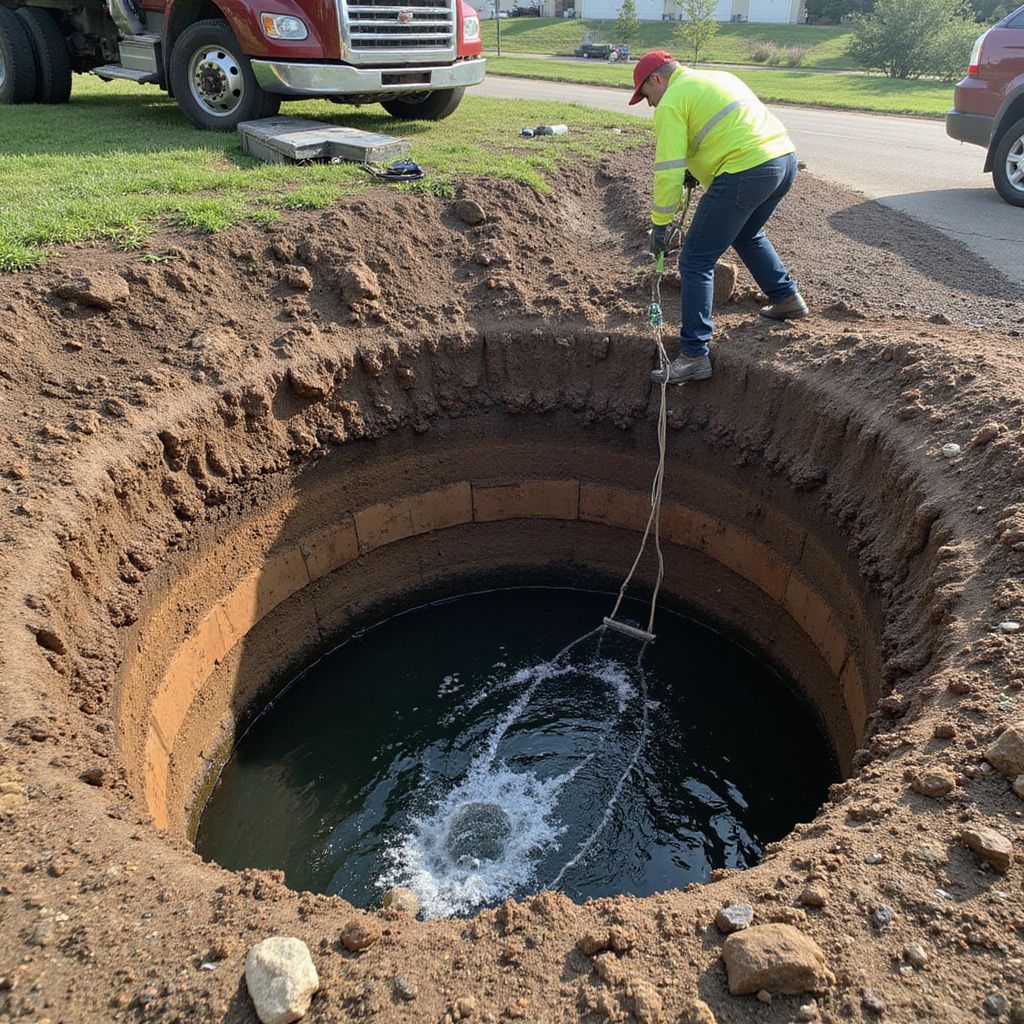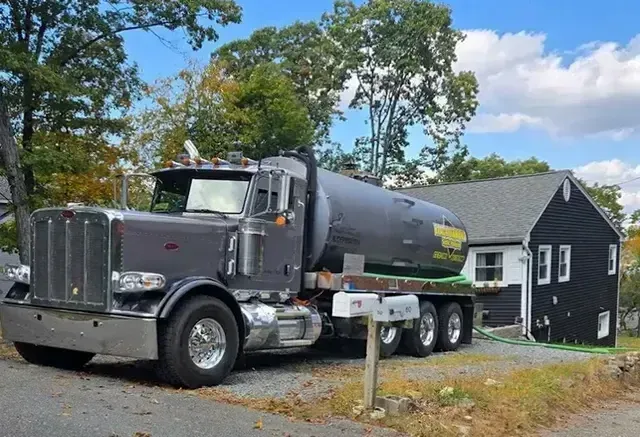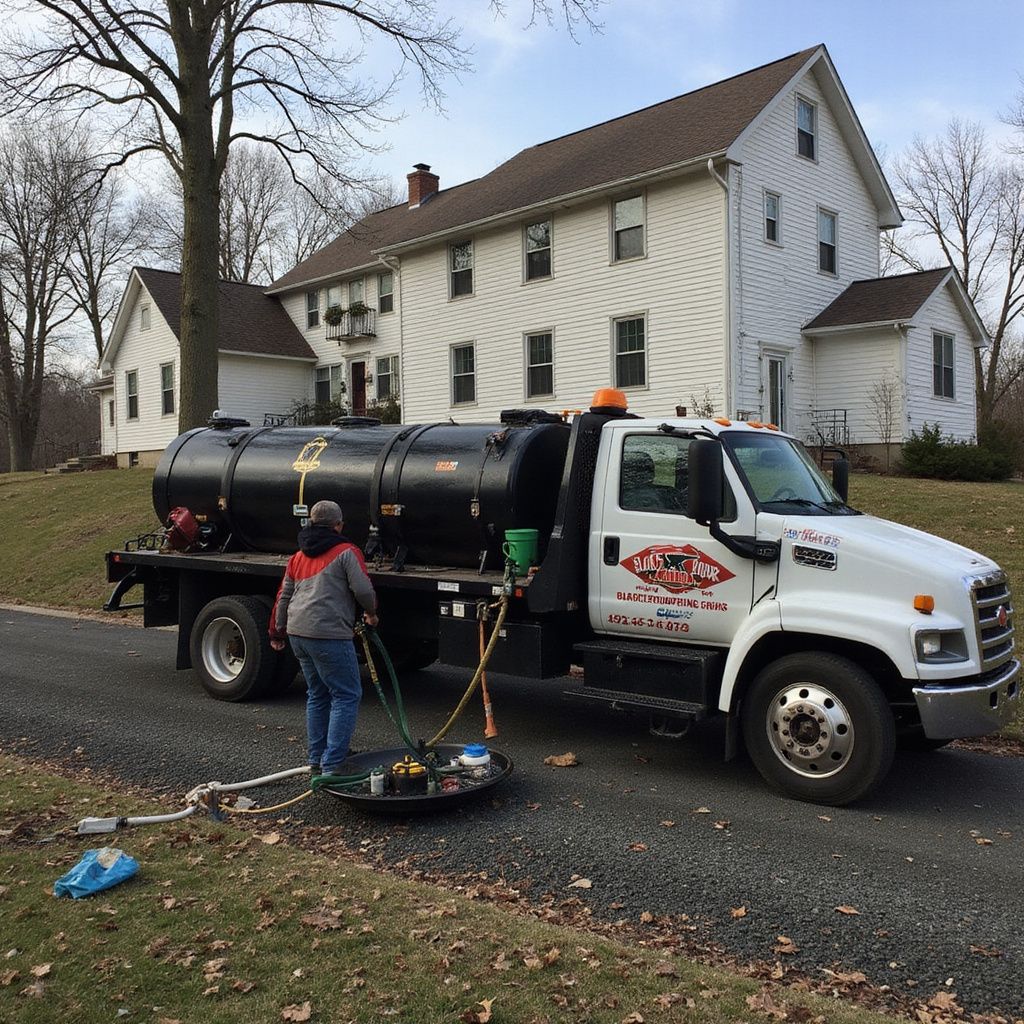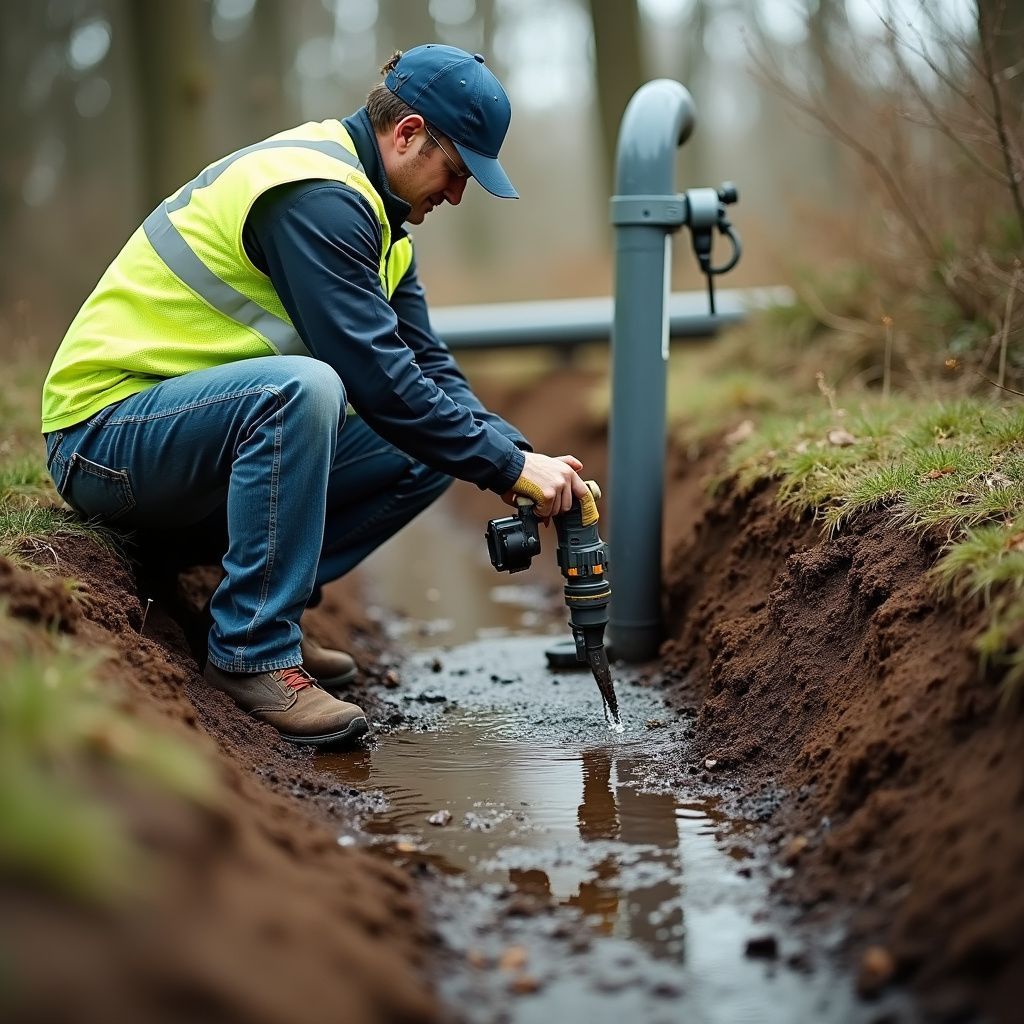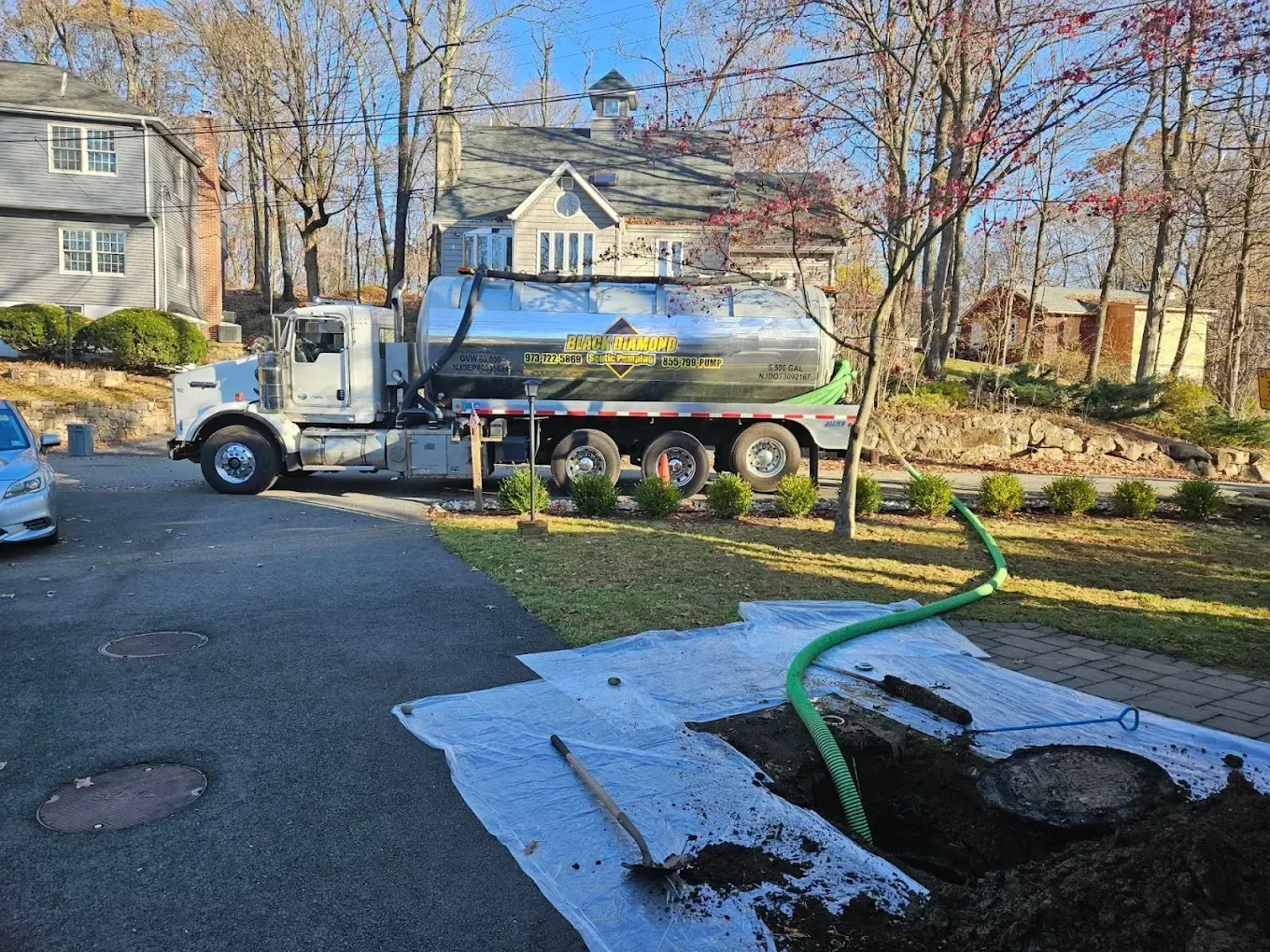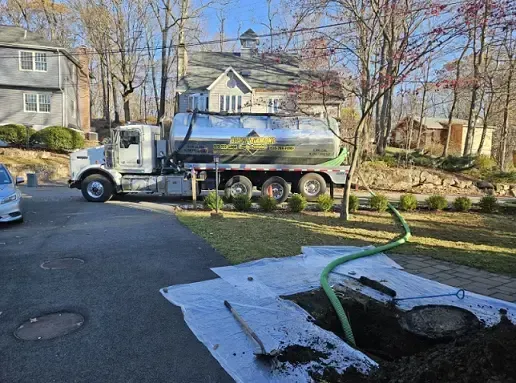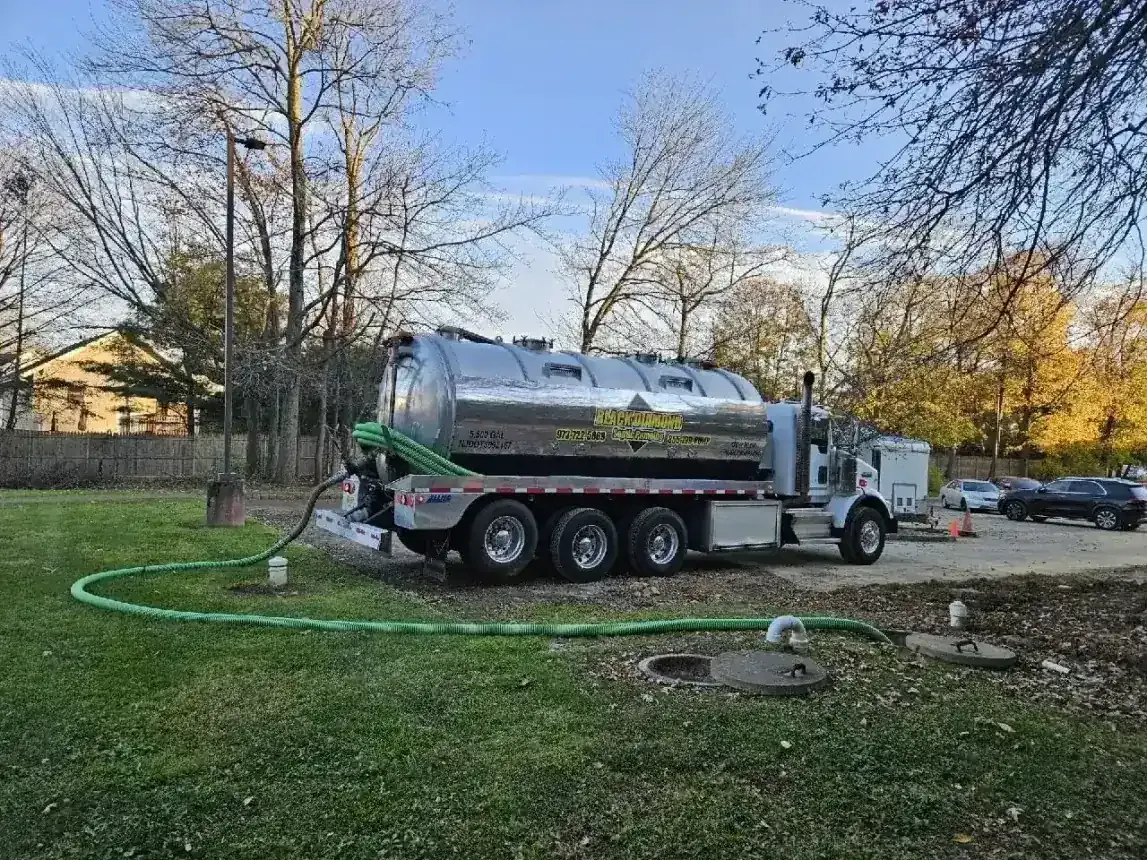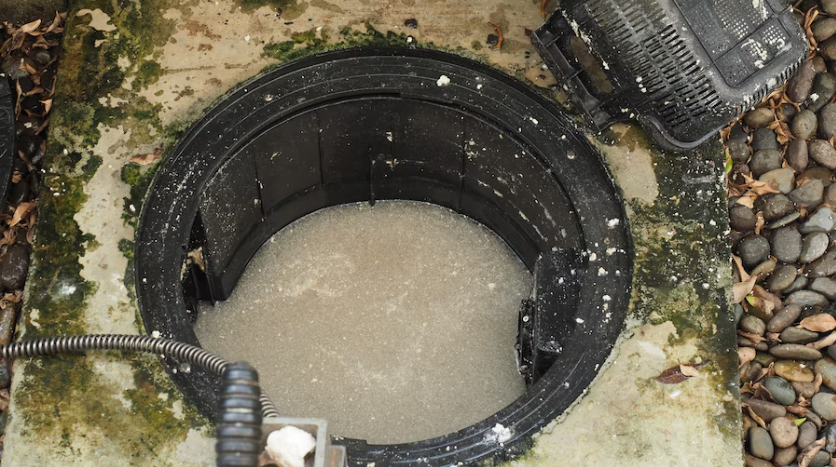By Ben Carr
•
August 7, 2025
So, you’re wondering how much a septic tank costs in New Jersey. Short answer? It depends. Long answer? Well - it really depends. And that’s not us dodging the question - it’s just the honest truth. If you’re here, chances are you’re building a new home somewhere in the Garden State, or you’re dealing with an older septic system that’s on its last breath (and possibly sending some unfortunate smells your way). Either way - whether you’re preparing for a big installation or a gut-punch replacement - it’s wise to know what you’re getting into before you start writing checks. Let’s walk through the septic tank replacement cost, step by step. The Average Cost to Replace a Septic Tank The cost of installing a new septic system generally ranges between $10,000 - $25,000. But before you fall off your chair - there’s a wide range because a lot of factors come into play. Type of system, size of the tank, local soil conditions, property access, town regulations, permits, contractors - they all matter. Let’s break these down further. Tank Type: Concrete, Plastic, or Fiberglass? First off - what’s your tank made of? Concrete tanks (the most common) are durable, heavy-duty, and typically last a long time. They usually cost between $2,000 to $3,000 just for the tank itself. With installation, add another $4,000-$10,000, depending on the complexity. Plastic (polyethylene) tanks are lighter and easier to install, but not as tough over time. These can be a little cheaper - $1,200 - $2,000 for the tank, and around $3,000-$7000 installed. Fiberglass tanks are similar to plastic in weight, but more durable and less prone to cracking. Think $2,000-$2,500 tank price, and total installation around $6,000-$9,000. But here’s the thing: the tank is just one piece of the puzzle. What really drives up the cost? The whole system around it. 2. It’s Not Just a Tank - It’s a Whole Ecosystem When people hear ‘septic system’, they think tank. But the tank is only one part. You’ve also got the drain field (leach field), pipes, pumps, filters, risers, alarms, access ports - plus excavation, backfilling, and maybe a bit of landscaping after the heavy equipment rolls out. The leach field, in particular, is where the dollars start stacking up. Depending on your property size, layout, and soil - this could cost $4,000 to $15,000 all by itself. If your soil has poor percolation (common in parts of north and central NJ), or you’ve got high groundwater, get ready for engineered systems - mound systems, pressure dosing, aerobic treatments - all of which can push total install costs over $20,000-$30,000. 3. Permits, Engineers, and Paperwork This is Jersey, right? So, yeah - expect red tape. Before you can install or replace a septic system, you’ll likely need: A perc test (to measure how your soil absorbs water) - about $300-$1,000. A septic design plan by a licensed engineer - anywhere from $1,500 to $3,500. Town permits and inspections - could be $500-$1,500, depending on the municipality. Some counties are sticklers for soil and groundwater compliance. In some cases, the entire process - from test to permit approval - can take weeks, even months. 4. Accessibility Got a flat, open yard with easy access? Great - installation might be on the lower end. But - if your property is steep, has rocky soil, overgrown trees, a tight driveway, or your old tank is buried behind a garage built in 1973? Yeah. That’s gonna cost you. Trenching, tree removal, special equipment - all of that adds up. Contractors may charge more simply due to the hassle factor. You could easily see a 20-30% increase over a ‘simple’ install. 5. Septic Tank Replacement vs. New Installation If you’re replacing an old system - things can get messy. Literally. You might need to pump and remove the old tank (around $1,000-$2,000), safely abandon it (fill it with sand or remove it completely), and reconfigure your yard. Plus, old systems don’t always meet current code - so it’s not a matter of swapping it out. It could be a full redesign. Replacement jobs in NJ often run in the $15,000-$25,000 range - especially if your system is more than 30 years old. Can You DIY Any of It? Short answer: Not really. Septic installation in New Jersey requires licensed professionals - both for health and legal reasons. You can get involved by gathering estimates, doing your own perc test prep, or helping with site cleanup, but the actual installation and system layout must be done by the pros.


